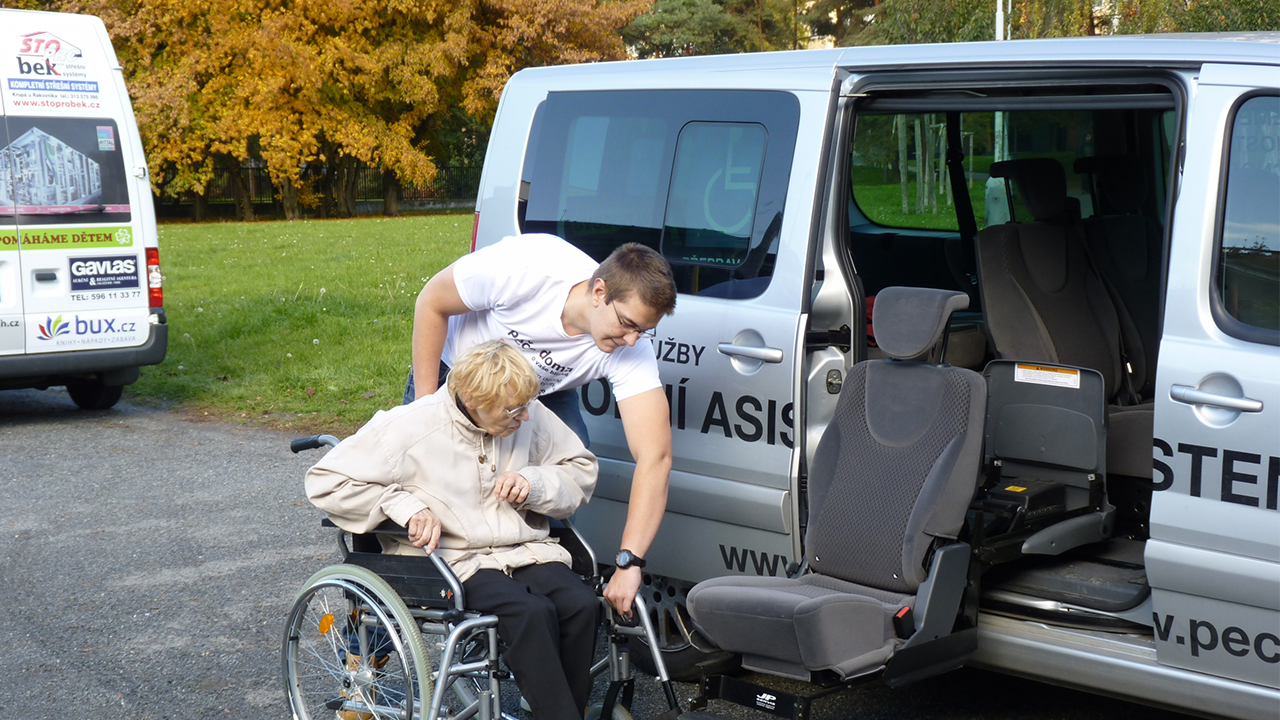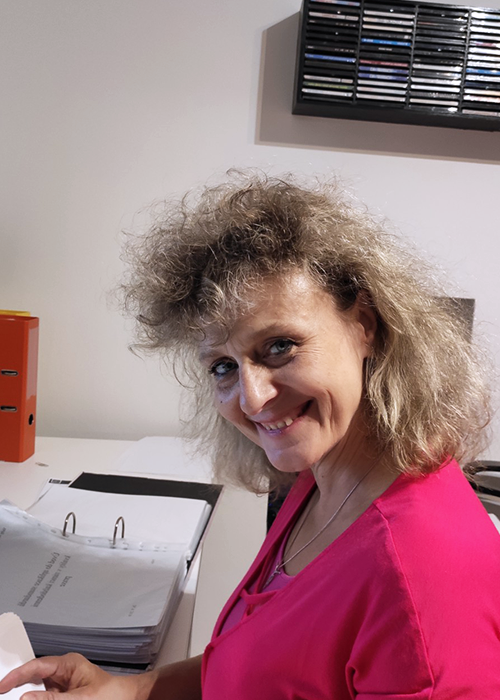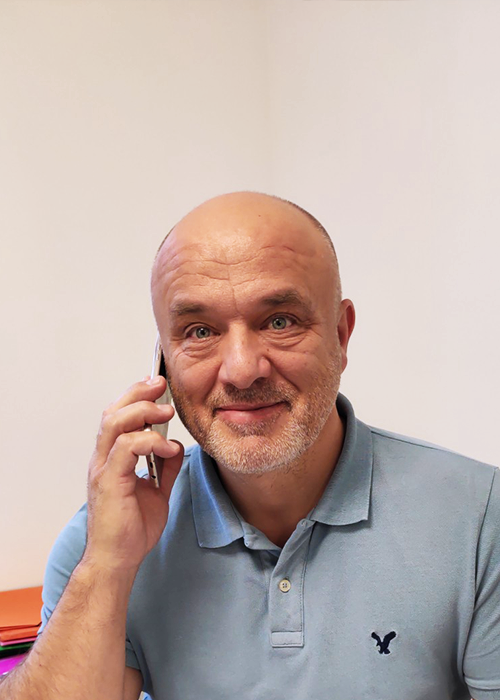We give helping Hands to others
Extending helping hands to those who are less fortunate
-
Transport and disablity
Transport with ambulatory assistance for seniors and disabled persons. -
Handyperson
Household Maintenance – repairs include purchase of necessary materials. -
Personal Assistance
Assistant is available to meet the needs of the client at home. -
Financial Aid
Provides connection between clients and donors. -
Back to normal Life
Stuck in a self-destructive cycle? Ready to change your life? This is where we start. -
Clinical Supervision
Individual voluntary therapy sessions for assistants. -
Palliative Care
Assistance for those wishing to remain in their home for end of life. -
Training and education
Seminars and coursework for social service workers.
Hands4U coordinates services from multiple organizations. We actively seek strategic partnerships in the U. S.
We are a group of organizations that work together in the field of social services.


Mission
To improve the quality and accessibility of services and to insure financial sustainability.Vision
To perfect collaboration between multiple organizations in order to attract exceptional social service employees and provide comprehensive care to our clients.Goals
Establish relationships that foster new ideas, address challenges, define best practices and identify financial resources that enable us to continue to improve our standard of care.TRANSPORT AND DISABILITY
- Senior citizens and those limited by their health or disabilities, regardless of age.
- Those unable to utilize public transportation or cab services due to their limited mobility, limited familiarity with the area, inability to pay, and the need for additional driver assistance.
- Children are transported most frequently to relief centers and to school.
- Adults ride to work, treatment centers, or the doctor.
We offer:
- Fees that are affordable and agreed upon prior to service.
- Individualized service tailored to the client’s needs
- Extra help, escort to and from buildings, etc
Our cars:
- 5 vehicles equipped with riding ramps, hydraulic seats, and wheelchair platforms
- 3 minivans, 2 vans and 2 small (double seats) cars
Our staff:
- 3 full-time and 1 part-time driver, 1 full-time dispatcher, 1 part-time mechanic
Our statistics for 2018:
- 2001 clients were served (1819 adults and 182 children) on 6162 trips
- 62,586 miles driven around Prague
Total cost in 2018 = $69.764
Break down:
- Drivers wages $45,707
- Fuel $12,389
- Maintenance and insurance fees $7,850
- Administrative costs $3,818
Fees paid by clients = $30,708
Balance is $39.056

Partnership Opportunities:
Financial need not met by current funding
- Drivers wages $25,956
- Fuel $6,600
- Maintenance and insurance fees $4,340
- Administrative costs $2,160
Non-financial
- Vehicle donation
With the money we get, we support this activity and make it available for more people.
HANDYPERSON
A thing as small as fixing a doorknob, hanging a picture, mending the wallpaper or changing a lightbulb can ease and improve one’s quality of life. When you add to the physical repair itself the work of purchasing necessary materials or spare parts, the work of a handyperson is invaluable.
We offer:
- subsidized prices
- background-verified workers
- Safe service
- affordable help
“I don’t want to bother my son or grandson and waste their time...it’s such a small thing, not even worth calling in a big company -- they probably wouldn’t be interested, anyway.”
“I have no one, and I’m all alone...would you please help me?”

Partnership Opportunities:
Financial
- Salary – $ 2,400/person per month
- Approximate cost of one visit (two hour work) - $40
- Tools and supplies - $150 per month
- Gas for car - $150 per month
Non-financial
- Labor – come to Prague and get your hands dirty
With the money we get, we support this activity and make it available for more people.
PERSONAL ASSISTANCE
Our Personal Assistants enable people to live at home, in a familiar and safe environment.
Our Assistants help a variety of people, from those confined to a wheelchair, to senior citizens with limited mobility, to those suffering from Alzheimer's. Assistance is also offered to clients living with diabetes or arthritis, or to those who have experienced a stroke. We help those convalescing after chemotherapy. We also work with children on the autistic spectrum as well as those living with Down syndrome and epilepsy.
We work to help clients live a quality and satisfying life given their relative situations. Since 1997 we have offered clients in-home social services 24 hours a day, 7 days a week, including weekends and holidays. We respect the dignity of every person.
The essence of a Personal Assistant is to help their client in the place and time of his or her choosing. This means that the Assistant is available to meet the needs of the client at home, at the hospital, at the office...anywhere the client needs them.
Specifically, Assistants help with personal care, including the client’s dressing, grooming, getting around, etc. Assistants also can assist in matters of personal hygiene and bathing, cooking and serving of food, care for the home and shopping. Personal Assistants can accompany the client to the doctor, to the office, on walks, etc.
Our Personal Assistants represent the largest organization of caregivers offering personal and in-home services in the Czech Republic.
Our 2018 statistics:
-
- 193, 200 logged assistant hours
- 315 field employees, 38 as office staff
- $21 per hour Assistant wage

Partnership Opportunities:
- Hourly Wages - $21 per hour
- Professional Services (office support) – $2.400 person/per month
- Office rent – $430 per month
Clients pay approx. 1/3 of hourly costs and the rest is paid from donations and grants.
With the money we get, we support this activity and make it available for more people.
FINANCIAL AID
What do we do?
We assist elderly and disabled individuals of all ages in accessing the resources necessary to afford care, in order to live in their own homes and not within the walls of the socio-medical complex.
How do we do it?
Online at www.pecovatel.cz. We provide clients and donors with visibility platforms through websites, social networks, and community events. Through the endowment fund’s “Choose, Give, Follow” program, we seek out individual and corporate donors for our clients. We host public, community-oriented events and fundraisers.
How to help:
- Regular or one-time client-specific direct donations.
- To the charitable account “Helping Wings” from which we distribute the gifts to the endowment’s beneficiaries.
- To the service account supporting the endowment’s operating costs.
Our 10 Commandments - “Get a Chance”:
G - Guarantee. Our disabled clients always receive 100% of all donations.
E - Effectiveness. Minimal operating costs thanks to an automated fiduciary system.
T - Transparency. A transparent and online system for managing financial resources.
A - Activity. Disabled clients are active online, chronicling their stories monthly.
C - Communication. Donors and clients communicate online.
H - Hour. An assistant’s hourly cost is $6.
A - Actual. Daily online updates documenting donor’s real-time donation statistics.
N - Necessity. A painstaking process for selecting those most in need.
C - Control. Donors can see how their gifts are stewarded; transparency is everything.
E - Every month. The certainty of a monthly donation gives much-needed help and security to those in need.

Financial - Administrative Salaries
- Office Rent – $550 per month
- Salary for 2 full-time staff - $4,800 per month
- Phones, travel costs, and other expenses - $250 per month
Non-financial - Event volunteers
Administrative and Client funds are used separately, therefore clients receive 100% of donations.
With the money we get, we support this activity and make it available for more people.
BACK TO NORMAL LIFE
Working with people living in complicated situations, those newly divorced, homeless, those whose lives have been wrecked by substance abuse, all of whom want a change. That is the sole and most significant requirement and condition for collaboration in this process.
Offering a hand on the road back to gainful employment and personal responsibility for one’s own life.
The objective is not to create a passive social welfare structure but rather a community of craftspeople and willing workers who are equipped for work on both residential and commercial construction sites. We also seek to support the sick, those with light to moderate disabilities, stay-at-home mothers and retirees.
There are currently 8 men living communally in shared housing

Partnership Opportunities:
- Coordinator’s salary ($1,000 per month)
- Construction machinery expenses ($500 per month)
- Purchase of tools and equipment
- Material for the construction of housing
- Sanitary facilities
Expenses are covered by a combination of private donations and a portion of the earnings from completed projects.
With the money we get, we support this activity and make it available for more people.
CLINICAL SUPERVISION
What do we do?
A caretaker who is responsible for a disabled or lesser-abled person comes into daily contact with difficult interpersonal problems, with human pain and helplessness, and is confronted with his or her own fragility and fears. Often, the issues assistants are trying to address at work exacerbate personal issues.
Why is counseling necessary?
If we do not secure qualified therapeutic care for assistants, they can very quickly burn out, or even, despite their own good intentions, cause their client's psychological harm.
In order to secure the most professional care and to avoid fluctuation in workers, we offer our assistants individual therapy sessions. Counseling is voluntary, and the assistant has the freedom to schedule sessions as he or she deems necessary.
What happens in therapy?
During a counseling session, an assistant, together with a professional therapist, thinks through problems specific to clients, processes emotions, strengthens or reframes personal boundaries, gains perspective or a new way of addressing relationship problems stemming from a specific client’s situation, and learns how to not carry personal issues into the professional environment.
Sessions are also a source of inspiration in determining how to better train and prepare assistants.

Partnership Opportunities:
- Therapist salary ($2,500 per month)
- Office rent ($550 per month)
With the money we get, we support this activity and make it available for more people.
PALLIATIVE CARE
Empowering people to die in a familiar environment, maintaining individuality and dignity. Personal assistants are non-medical workers.
Palliative care - accompanying the dying, supporting home hospice care
- assists those who wish to die in their own home environment.
- provides support to the client and family in order to secure necessary and adequate client care.
- enables those caring for the dying client to keep that person at home by utilizing home hospice services.
- helps in the moments when the client is preparing to die and in the moments as they are dying.
- takes very seriously the fact that they can help the client leave this world in an environment that is familiar and comforting to him or her, with the support of loved ones.
- strives to validate the experience of death as a natural part of life and not one shuttled behind hospital walls or into the residential complexes of social welfare.
Employees who provide end-of-life care are systematically trained in accompanying those who are dying, and have access to psychological support.

Partnership Opportunities:
- Supervision ($38 per hour)
- Training for personal assistants ($65 per day)
With the money we get, we support this activity and make it available for more people.
TRAINING AND EDUCATION
Intentional formation through training programs for social service workers and social workers specializing in residential care services.
For social service workers amounting to 150 hours and 19 subjects in all-day programs, fully accredited by the Ministry of Labor and Social Affairs.
Courses cover topics such as activation of individuals living with dementia, assisting in end-of-life care, communicating with sensory or mentally disabled individuals and those living with autism, physical manipulation and physiotherapy, setting and maintaining boundaries, Psychohygiene, emergency first aid administration, etc.
Story:
An assistant, after completing the basics of first aid, helped a collapsed 90-year-old client living (walking and communicating) with Parkinson’s Disease, who had suffered a heart attack. The assistant maintained the client’s vital functions until the arrival of the EMT’s, and the gentleman even started to revive.
The emergency service workers and hospital staff commended her on saving the man’s life. The client’s family, however, was very angry with her; they thought she should have let their father die. After the initial shock, the assistant, thanks to supervision and training in boundaries, was able to communicate to the family that she was hurt by their response but forgave them, and they ultimately apologized to her. When the gentleman eventually did pass away after three months, his family thanked the assistant for giving their father three more months to live, during which time a significant and meaningful change in their relationship occurred.

Partnership Opportunities:
- Equipment for training classrooms
- Materials for training in emergency first aid
- Aids/Dummies - participants in simulated accidents, injuries, and unanticipated health complications in emergency first aid situations
- Special training guests - i.e. a blind or deaf individual, an individual in a wheelchair, etc.
- All-day training for the group of 12 persons ($780)
With the money we get, we support this activity and make it available for more people.
To donate click button, choose Hands4U and corresponding Sub Fund
Give NowThank you very much for your support and generosity.
Meet our current Program leaders
All of us works together to create something bigger and better. Together we are HANDS4U.







